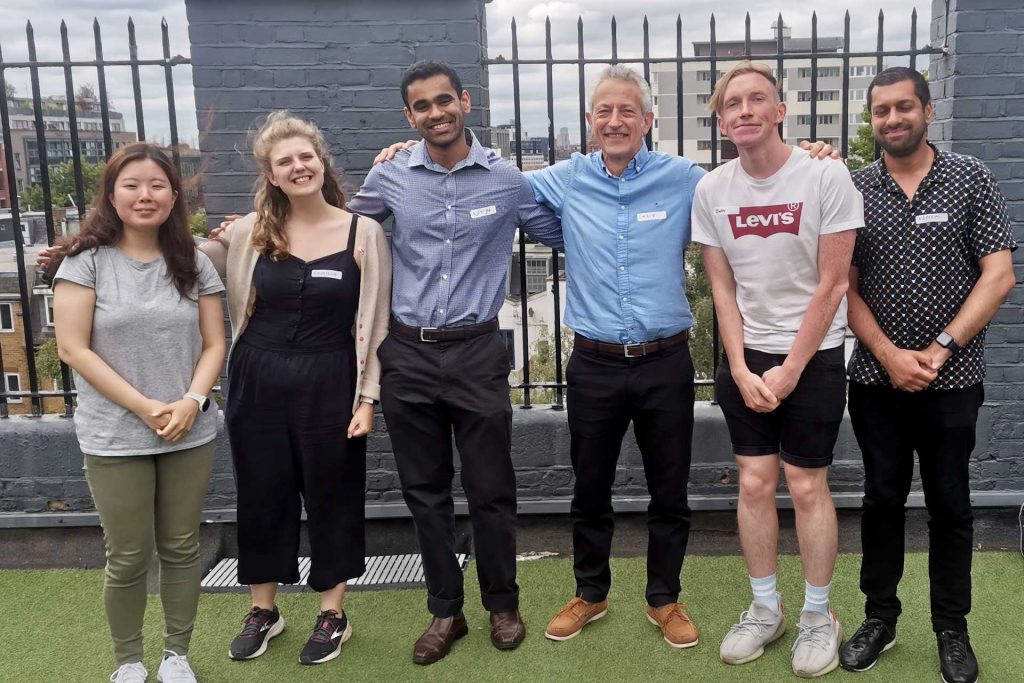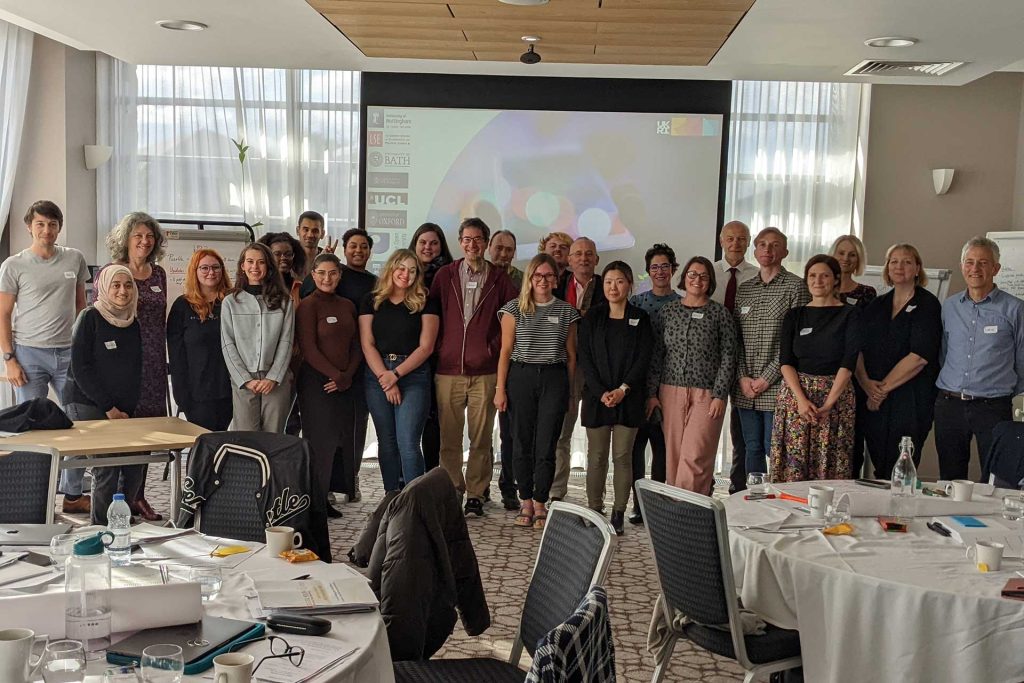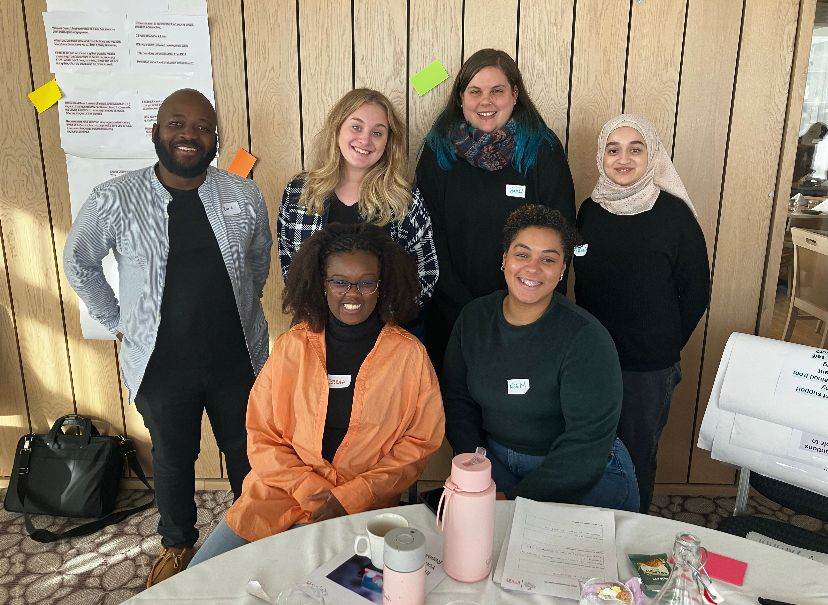About Digital Youth
Digital Youth, an interdisciplinary programme bringing together world-leading researchers from the Universities of Nottingham, Auckland, Bath, Glasgow, Kings College London, LSE, UCL and the Open University, is co-produced and co-designed with our young person’s advisory group Sprouting Minds and is at the forefront of these developments.
The Digital Youth team is working to find practical solutions through understanding the complex risks and opportunities for mental health associated with young people’s engagement with the digital world with the aim of generating new preventative and therapeutic interventions.
Our vision:
To harness the potential of digital technology to transform young people’s mental health and wellbeing and provide a safe, and supportive, digital environment to tackle the growing humanitarian crisis of unmet need arising from mental health disorders in young people aged 10-24 years old.



If you would like to find out how you can take part in our research, get in touch
What’s the problem?
We face a youth mental health crisis, exacerbated by the covid pandemic and associated restrictions, with one in six young people suffering from a mental health disorder [1] with rates of self-harm increasing three-fold over the last decade [2]. Given that around 70% of young people with mental health problems receive no help at all [3] – digital online support and interventions have been seen as part of the solution to increase access to help. However, to date, very few digital interventions and apps have a research evidence base, and those that do struggle to be implemented in the NHS.
The youth mental health crisis has coincided with a societal transformation with the emergence of the ‘digital environment’ where being online and using social media has become integral to young people’s lives. While social media can offer a valuable platform to access information, exchange views and receive support from others, it has also been linked with depression [4], suicide [5] and self-harm, particularly in girls and marginalised groups. Potential mechanisms include social isolation, disturbed sleep, attentional distraction, cyberbullying, and pressures to conform to idealised lifestyles and body images.
Not all young people are at risk of mental health problems with social media and currently there is little understanding of what factors make some young people more vulnerable than others. Policy initiatives are hampered by uncertainty regarding mechanisms and the direction of effects linking use of digital technology to risks for mental health problems in young people [6]. The COVID-19 pandemic and associated restrictions have been associated with increased mental health problems [1] and greater online activity in young people. While their need to access trusted support online is greater than ever, social media platforms are not designed to meet mental health needs of young people.
What are the solutions?
This interdisciplinary programme of research addresses two major challenges:
Research Theme 1: Digital Risk and Resilience
- What are the mechanisms and direction of effects between exposure to the ‘digital environment’ and young people’s mental health?
- How does engagement with the digital environment influence, and how is it influenced by, diversity in adolescent mental health problems, brain and cognitive development?
- What potentially modifiable factors promote mental health resilience in young people to adverse digital exposures?
Research Theme 2: Preventative and Personalised Digital Interventions
- How can everyday digital platforms be designed to minimise harms to young people with mental health problems, and promote resilience to online mental health risks?
- What are the mechanisms by which human support facilitates effective digital interventions?
- How to develop personalised digital interventions sensitive to young people’s diversity and preferences that target psychological mechanisms (e.g. emotional regulation and impulsivity) and integrate human support to optimise outcomes and bridge the adolescent mental health treatment gap.
We will focus primarily on depression, anxiety and self-harm as the mental health problems with high and increasing prevalence both across adolescence and during the last decade [1].
Our aims
Working together with young people we will:
- identify risk and resilience factors related to troublesome online experiences and activities, to prevent or reduce the emergence of depression, anxiety, and self-harm in young people (Research Project 2).
- understand how individual differences affect digital engagement (e.g. with social media and games) (Research Project 3) and adolescent brain and psychosocial development (Research Project 4).
- build, adapt and pilot a new generation of personalised and adaptive digital interventions incorporating a mechanistic understanding of human support (Research Project 6) with a new digital platform (Research Project 5) for personalised intervention delivery and trials in adolescent mental health conditions.
- develop and test a novel socially assistive robot to help regulate difficult emotions with a focus on young people who self-harm (Research Project 7).
- develop and test a new digital tool to better assess and manage self-harm in young people (Research Project 8).
(1) https://digital.nhs.uk/data-and-information/publications/statistical/mental-health-of-children-and-young-people-in-england/2020-wave-1-follow-up
(2) Mayor BMJ2019;365:l4058.
(3) https://digital.nhs.uk/data-and-information/publications/statistical/mental-health-of-children-and-young-people-in-england/2017/2017 [cited 15 December 2020].
(4) Kelly et al. EClinicalMedicine. 2018;6:59-68.
(5) Niederkrotenthaler et al. JAMA Psychiatry. 2019; 76(9):933-40
(6) https://www.gov.uk/government/consultations/online-harms-white-paper2019

